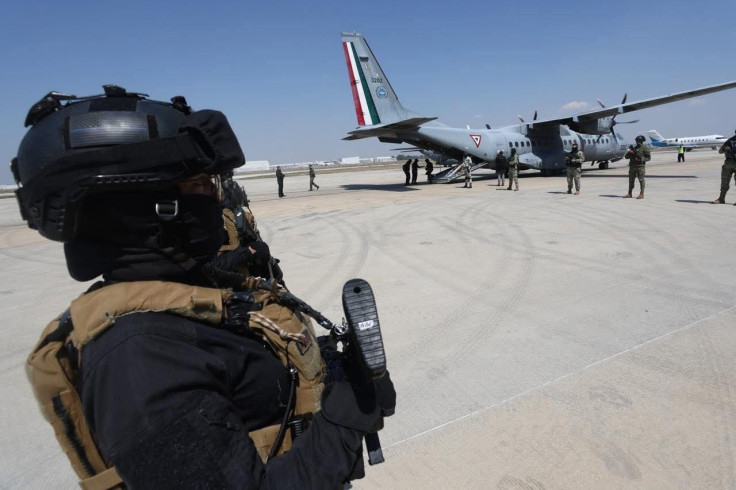
The names of the 26 high‑ranking cartel figures that the Mexican government extradited to the United States under a high‑stakes agreement with the Trump administration have been revealed. The list includes the leader of Los Cuinis and a crime figure allegedly involved in the murder of a Los Angeles County sheriff's deputy.
The cartel members were handed over to U.S. custody on August 12, 2025, following a deal that ensured none would face the death penalty. Among the extradited is Abigael González Valencia, better known as "El Cuini," the longtime leader of Los Cuinis, which served as the financial arm of the Jalisco New Generation Cartel (CJNG). Linked through marriage to CJNG's head, Nemesio "El Mencho" Oseguera Cervantes, González Valencia managed vast drug‑trafficking and money‑laundering operations until his arrest in 2015.
Difunden primeras imágenes del traslado a EU de 26 integrantes de cárteles. Entre ellos, líderes de Los Cuinis, La Familia Michoacana, Los Zetas y el Cártel de Sinaloa.https://t.co/fshZ2xvMMB pic.twitter.com/QgjR2g6lgq
— La Jornada (@lajornadaonline) August 13, 2025
Also included in the extradition was Roberto Salazar, accused of involvement in the 2008 killing of a Los Angeles County sheriff's deputy. Salazar's case has long been a priority for California law enforcement, which has sought his return for over a decade. Other men in the group are tied to the Sinaloa Cartel, Los Zetas, and the Knights Templar cartel, including Servando Gómez Martínez, known as "La Tuta," the former leader of the Knights Templar in Michoacán.
This is the second large-scale extradition operation between Mexico and the United States this year. In February 2025, Mexican authorities transferred 29 cartel members, among them veteran drug lord Rafael Caro Quintero, who is wanted for the 1985 kidnapping and killing of U.S. Drug Enforcement Administration agent Enrique "Kiki" Camarena. In both instances, Washington agreed not to pursue capital punishment, a condition considered crucial for Mexico's cooperation.
The timing of the August handover came amid tense trade negotiations between the two countries. President Donald Trump had threatened tariffs on Mexican exports if the government of President Claudia Sheinbaum did not step up cooperation against drug cartels. While Sheinbaum has publicly rejected any possibility of U.S. military intervention on Mexican soil, she has demonstrated a more proactive approach to combating organized crime than her predecessor, President Andrés "AMLO" Manuel López Obrador.
U.S. Attorney General Pam Bondi praised the operation, saying that the cartel members "played a role in bringing violence and drugs to American shores" and that, under the Department of Justice, they would "face severe consequences." U.S. Ambassador to Mexico Ronald Johnson called the extradition a sign of strong bilateral collaboration, emphasizing that removing these figures from Mexico's streets would make both nations safer.
© 2025 Latin Times. All rights reserved. Do not reproduce without permission.



